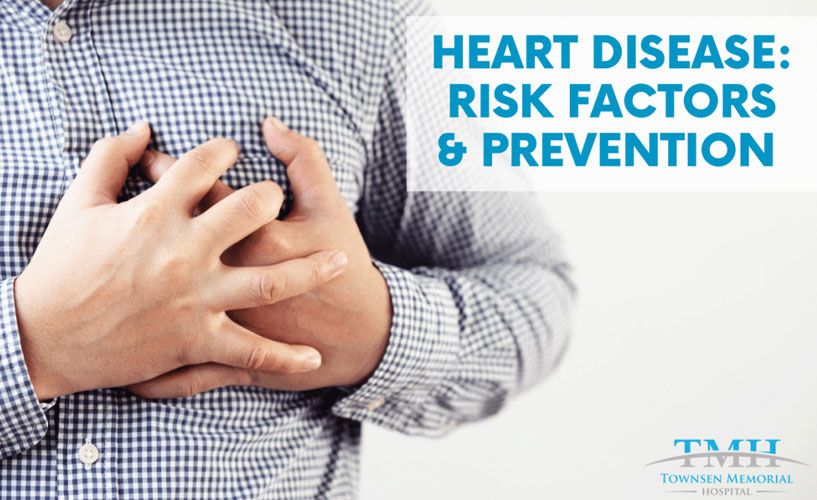Heart Disease: Risk Factors And Prevention

Each February, we celebrate American Heart Month by motivating each other to adopt healthier lifestyles to prevent heart disease. Being physically active, eating healthier foods, getting enough sleep, not smoking, and finding healthy ways to reduce stress can help prevent heart disease. And, when we take care of our hearts, we set an example for those around us to do the same.
Heart disease is the leading cause of death in the United States claiming the lives of over 600,000 Americans every year. Heart disease affects all ages, genders, and ethnicities. Risk factors include high cholesterol, high blood pressure, smoking, diabetes, obesity, and excessive alcohol use. About 47% of people in the United States have at least one of these risk factors.
Heart disease is a general term used to refer to several types of heart conditions. There are four common types of heart disease.
Coronary Artery Disease
This is the most common type of heart disease that affects blood flow to the heart that can lead to a heart attack. A heart attack is an immediate trip to the Emergency Room.
Arrhythmia
Arrhythmia is a change in the heart’s sequence of electrical impulses that can result in heartbeats being too fast (tachycardia), too slow (bradycardia), or irregular (palpitations). In extreme cases, sudden cardiac arrest may occur. This is when the heart suddenly stops beating effectively and blood is not circulated by the heart. About 95% of individuals that have sudden cardiac arrest die from this condition. Time is of the essence and a call to 911 and a trip to the emergency room need to happen immediately.
Heart Valve Disease
This occurs when a valve in the heart is damaged or diseased.
Heart Failure
Heart failure is a condition where the heart does not work the way it should. It does not mean the heart has stopped beating but instead could mean it has fluid buildup.
There is a long list of symptoms to watch out for when it comes to heart disease. Some of the most common include:
- Pain, pressure, or discomfort in the center of the chest
- Pain, tingling, or discomfort the arms, back, neck, jaw, or stomach
- Shortness of breath
- Nausea
- Vomiting
- Indigestion or heartburn
- Sweating and cold, clammy skin
- Dizziness or lightheadedness
- Fast or uneven heartbeat
- Shortness of breath or trouble breathing
- Swelling in the feet, ankles, legs, and abdomen
- Fatigue
There are several imaging tests done in the hospital to determine heart disease including an Electrocardiogram, Echocardiogram, MRI or CT of the heart, stress test, and more. Some possible treatments include medication, surgery, or something as simple as a lifestyle change.
Townsen Memorial Hospital Is Here For You
At Townsen Memorial, safe, effective, and affordable care is our top priority. Therefore, we strive to provide the best patient experience across all Townsen Memorial affiliated sites. The high-quality care starts at our Emergency Room and carries on through our Imaging Centers, Surgery Centers, and up through our Townsen Memorial Hospital. Our medical sites are located in Houston, TX, and the surrounding areas, to provide the best care to patients in and around Harris County. To learn more, visit our website or call 1-877-494-9487.